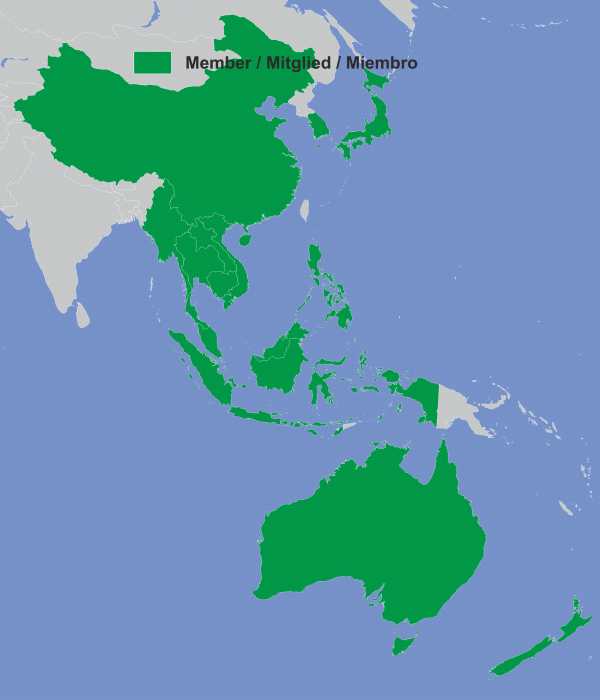|
|
The Regional Comprehensive Economic Partnership (RCEP) is a free trade agreement concluded between 15 countries in the Asia-Pacific region, namely Australia, Brunei, Cambodia, China, Indonesia, Japan, Laos, Malaysia, Myanmar, New Zealand, Philippines, Singapore, South Korea, Thailand, and Vietnam. The 15 member countries account for about 30% of the world's population (2.2 billion people) and 30% of global GDP ($26.2 trillion) as of 2020, making it the world's biggest trade bloc in history. It was signed at the Vietnam–hosted virtual ASEAN Summit on 15 November 2020, and is expected to take effect within two years, after it has been ratified by the member countries. The trade pact, which includes a mix of high-income, middle-income, and low-income countries, was conceived at the 2011 ASEAN Summit in Bali, Indonesia, while its negotiations were formally launched during the 2012 ASEAN Summit in Cambodia. It will eliminate about 90% of the tariffs on imports between its signatories within 20 years of coming into force, and establish common rules for e-commerce, trade, and intellectual property. The RCEP is the first free trade agreement between China, Japan, and South Korea, three of the four largest economies in Asia. At the time it was signed, analysts predicted that not only would it help stimulate the economy amid the COVID-19 pandemic, it is said to "pull the economic centre of gravity back towards Asia" as well as amplify the decline of the United States in economic and political affairs.. Link: RCEP

Members, Observers and other participations
|
|
